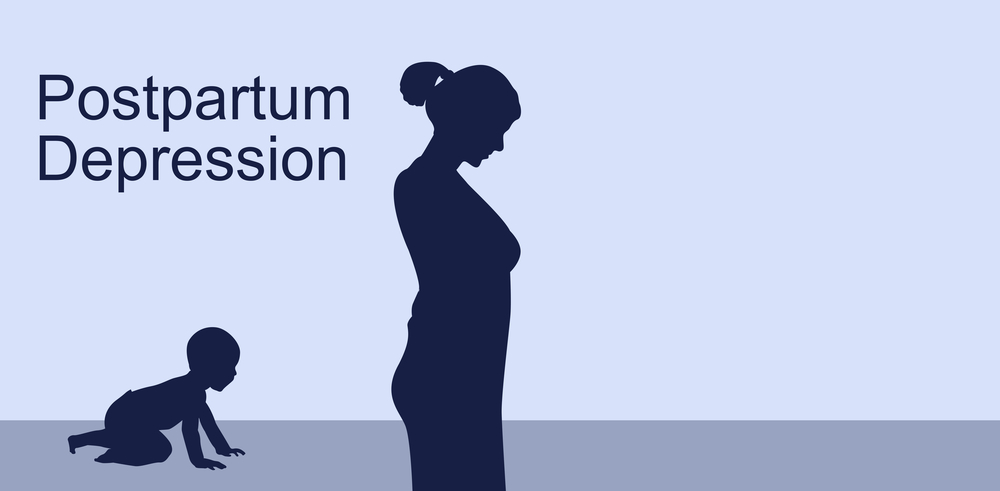Postpartum is the time period after giving birth. There are different postpartum conditions you can develop in the weeks to months following giving birth. Some of the more common ones are postpartum depression and postpartum anxiety. Another postpartum condition that you can develop is postpartum rage. It is different from feeling normal frustration and anger from a changing season. It is the feeling of intense anger, aggression, and agitation. People who develop postpartum rage will know that their anger is not justified, and were usually not angry people before this stage in life.
Causes & Risk Factors
These postpartum conditions can occur because of the changes in hormones after giving birth, the lack of sleep, and the lack of nutrition. The actual cause is unknown for postpartum rage. You are at a higher risk of developing if you have a family history of postpartum rage, depression, or anxiety. If you have had a severe drop in estrogen or progesterone. Previous postpartum seasons that you have dealt with postpartum depression or anxiety. If you do not have a good support system in place. Having a traumatic birth can raise your risk and so can lack of sleep. Having a preexisting mental condition such as bipolar disorder can raise your risk as well. Going through a divorce, death, or loss of a job.
Symptoms
Symptoms can vary in intensity for someone with postpartum rage. The feeling of always being angry and agitated may increase or decrease throughout the day. You may feel uncontrollable anger building up with just everyday life. You may feel as though you cannot control your anger. Increased yelling. Punching, throwing, or slamming doors. There may be a constant feeling of irritability with no relief. You may feel yourself feeling angry about things that normally wouldn’t set you off.
Diagnosis
There is no official diagnosis for postpartum rage. Doctors do acknowledge it, and will help you if you are having symptoms or concerns. Postpartum depression and anxiety fall are a part of Perinatal Mood and Anxiety disorders. Postpartum rage falls under the Perinatal Mood and Anxiety disorder spectrum. At a normal postpartum check up your doctor will ask you some questions to see if you are suffering from depression or anxiety. How you answer these questions may clue them in if you are suffering from postpartum rage too. It is important that during this check up and questions you are extremely honest with your doctor. That way they are able to help you if you need it.
Postpartum rage is different from postpartum depression. In some instances though, postpartum rage can be a sign or symptoms of postpartum depression.
Treatment
Symptoms and severity vary between patients. Treatment will vary on how the postpartum rage is affecting you and what treatment options suit you best.
One option for treatment is medications. Selective serotonin reuptake inhibitors, or serotonin and norepinephrine reuptake inhibitors can both help take the edge off your mood and anger. They can help level your mood. This is a temporary fix that can be beneficial in making you cope during this time.
Another treatment option is talk therapy. This can help you learn ways to manage your anger and diffuse your anger. It can also help you identify triggers. A trigger could be hearing your spouse complain how tired they are, when you don’t feel like there is any comparison to your level of tiredness. Writing down your triggers can help you verbalize your triggers to those around you to help you navigate the rage and this season.
Support groups both online or in person can also be beneficial. This can help you feel not so alone during this transitional phase of having a new baby to care for.
Lifestyle changes you can try are to get daily exercise without overdoing it, eating nutritious meals, getting help regularly, building a support system, and cutting out intentional time for yourself every single day.
Takeaway
You cannot prevent yourself from developing postpartum rage. Nothing you do has caused you to develop this condition. It may feel like a long time before you start to feel like yourself again. Just know that this time is temporary and it will pass. The postpartum stage can last anywhere from 6 weeks after birth to a year. If you are struggling do not be afraid to ask for help.
READ MORE: Postpartum Depression
Sources:
https://my.clevelandclinic.org/health/diseases/24768-postpartum-rage
https://healthsciences.arizona.edu/news/blog/postpartum-rage-what-new-moms-need-know
https://awhomaha.com/blog/postpartum-rage-is-more-common-than-you-think/
https://www.healthline.com/health/postpartum-rage#takeaway








